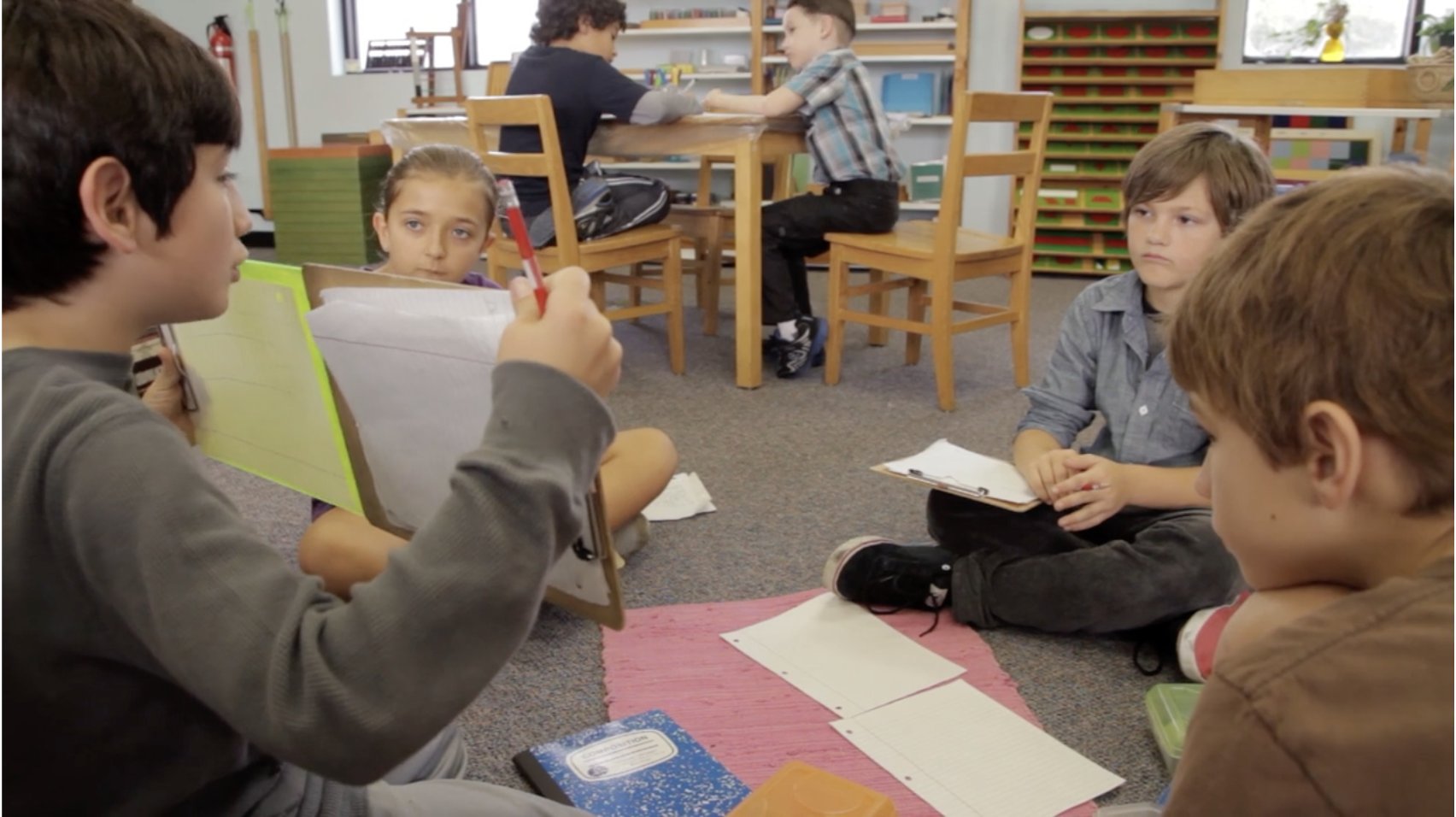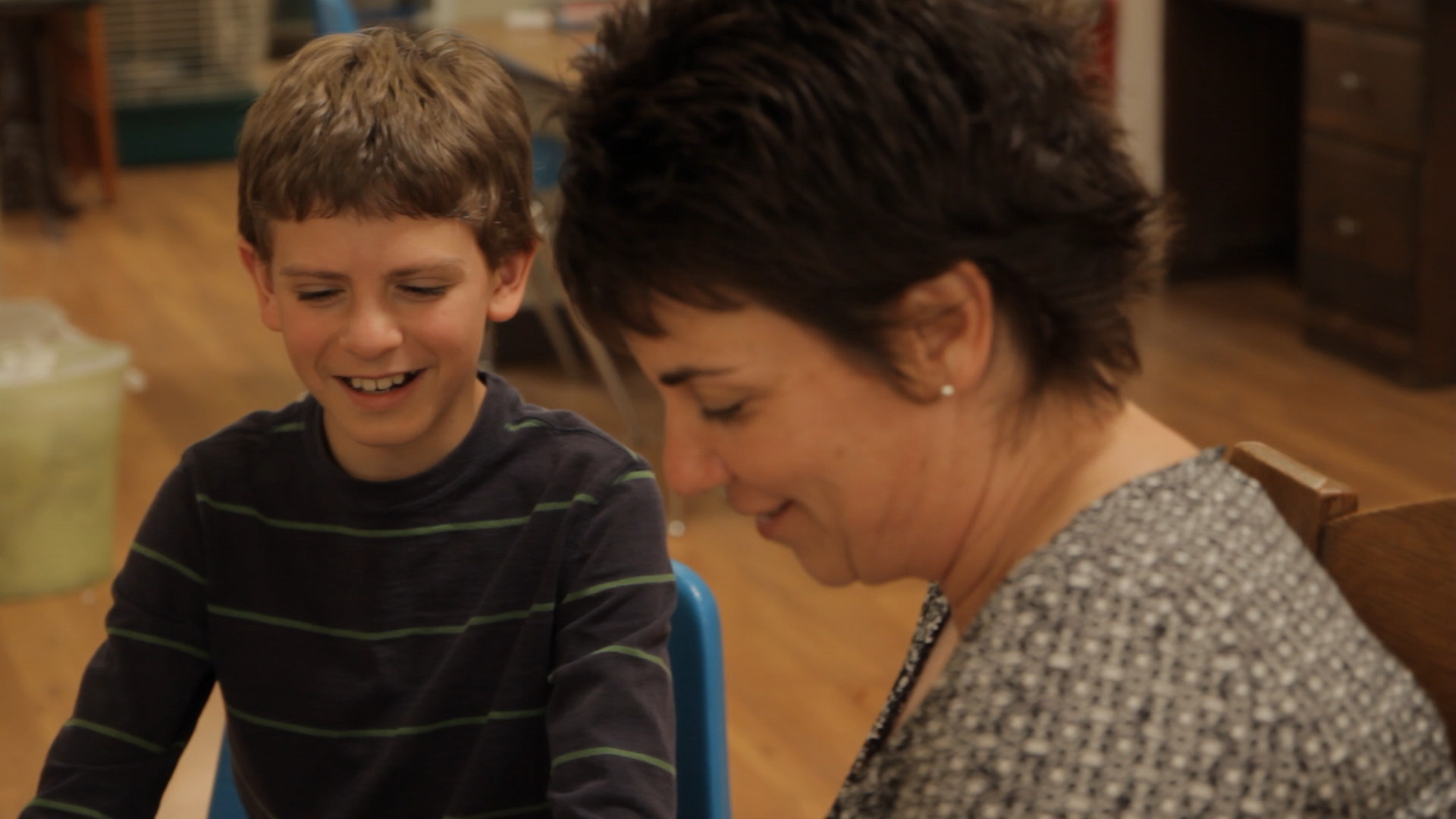Capturing Ordinary Days:
Socialization in the Elementary Setting
A thriving classroom culture of collaborative learning creates the necessary dynamics for a strong learning community. The Montessori elementary classroom includes a multiaged group of children, either 6 to 9 years of age, 9 to 12 years of age, or occasionally 6 to 12 years of age grouped together. Children’s social-emotional development is supported by nested communities, together for three-year cycles, underpinned by a definitive classroom structure. Children have the time to experience multiple social roles. The teacher sets the tone for the community, delicately guiding children in their social interactions and the daily tumult by using the tool of observation. Conferences with individuals and larger group meetings with the children provide further opportunities to support a healthy social environment.
MEETINGS AND CONFERENCES (17:33)
A look at the Montessori teacher’s role in setting the tone and supporting social-emotional development in the elementary classroom
Shorts: Socialization in the Elementary Setting
1. Clean Up, Set Up (5:20)
3. Snakes (8:34)
Delving Deeper Into Our Craft:
Socialization in the Elementary Setting
A Man, a Monkey, and a Parrot Walk into a Montessori Classroom...
by Wendy Tye
First off, before we can discuss humor in the classroom, we need to establish some parameters. By “humor” I am not talking about biting, rude, vicious humor, or humor that puts others down or attempts to allow the instigator a feeling of superiority. I am not referring to sarcasm, which can be hurtful and cruel. I am also not talking about taunting, making fun of others, or even lightly mocking them. Now then, what are we to talk about?
It is actually easier to tell what humor is not than to tell what it is. In most dictionaries humor is roughly defined as both something that evokes laughter as well as a positive state of mind or outlook. One only need think of a time when they thought something was funny and didn’t laugh out loud or were feeling positive and optimistic but not feeling humorous at all to recognize that humor is not easy to pin down. However, we can easily see the positive effects of it in a classroom. Children are happy. They laugh freely. They are capable of handling adversity. They tend toward levity and they see the world in terms of it being an experimental playground where they can test social, academic, and cultural norms and find the edges of what is acceptable generally or what is acceptable in their community. The sense of humor I refer to is about optimism, forgiveness, lighthearted reaction, self-reflection, an ability to find nuanced, varied meanings in an event or phrase, or recognizing many facets of a thing, word, story, or experience. It is about seeing one’s own role in the situation as positive, unique, and potentially worthy of a chuckle… READ MORE
EVERYDAY MUSIC (10:59)
Capturing ordinary days in Montessori environments... Children are exposed to the fundamentals of music on a daily basis through integrated materials and activities.
Mindful Practices in Education: Montessori’s Approach
by ANGELINE S. LILLARD, PH.D.
Abstract:
Mindfulness training has had salutary effects with adult populations and it is seen as potentially helpful to children’s development. How to implement mindfulness practices with young children is not yet clear; some meditation practices, like sitting still for long periods with internally self-regulated focused attention, seem developmentally inappropriate. Montessori schooling is a 100-year-old system that naturally incorporates practices that align with mindfulness and are suited to very young children. Here I describe how several aspects of Montessori education, including privileging concentrated attention, attending to sensory experience, and engaging in practical work, parallel mindfulness practices. These aspects might be responsible for some of the socio-emotional and executive function benefits that have been associated with Montessori education, and they could be adapted to conventional classroom methods... READ MORE
LITERACY (24:18)
Capturing ordinary days in Montessori environments….The natural development of a literate human being, able to express himself and communicate successfully with others, is at the root of authentic Montessori practice.
In Her Words
Excerpts from The Advanced Montessori Method II, formerly titled The Montessori Elementary Material, first published in 1916
In her two volume work, Dr. Montessori sought to explicate the approach she brought to the older, elementary age children. In these excerpts, she addresses the development of reading in the context of a connection to other people and society.
“Our first publication on the methods used in the ‘Children’s House’ made clear two distinct operations involved in reading: the interpretation of the meaning and the pronunciation aloud of the ‘word…’” READ MORE
The MES Fund, Inc.
AMI/USA established the MES FUND, INC., the first financial aid fund to benefit AMI teacher trainees, in honor of Margaret Elizabeth Stephenson, who devoted her life to AMI teacher training in the United States. The fund, which is administered and supported by AMI/USA, honors her legacy and extends her contribution to touch future teachers.








